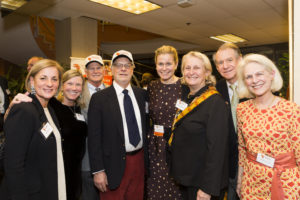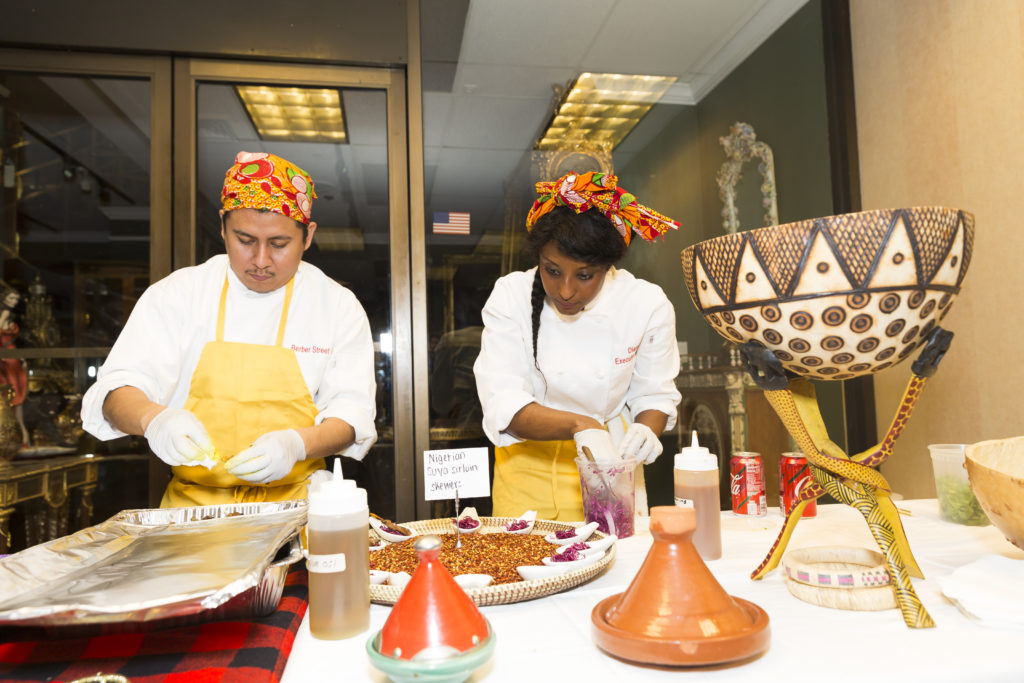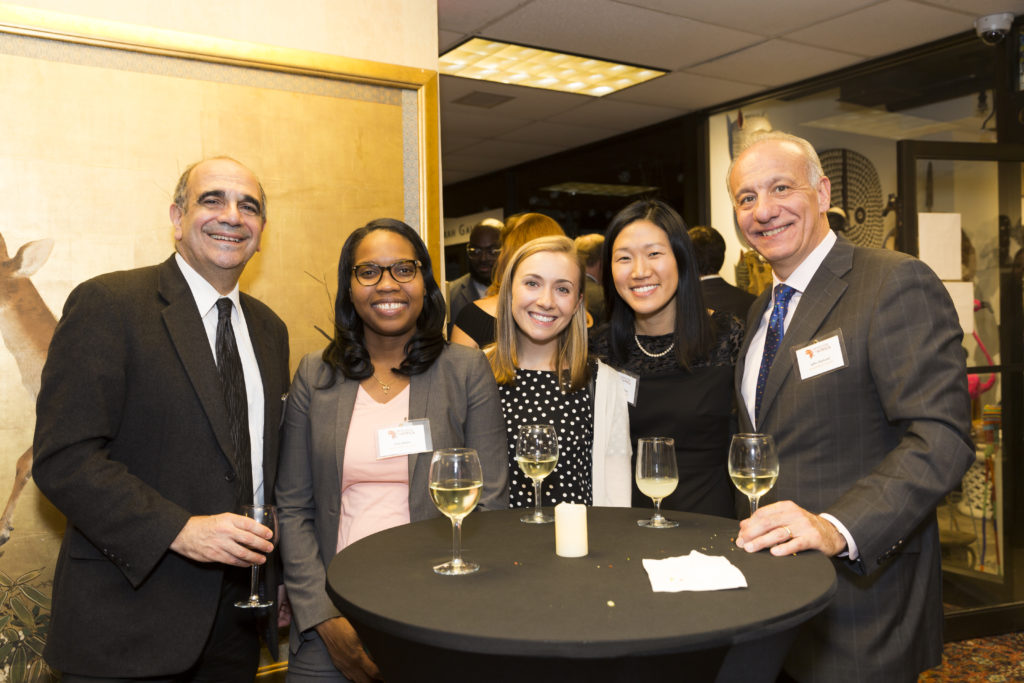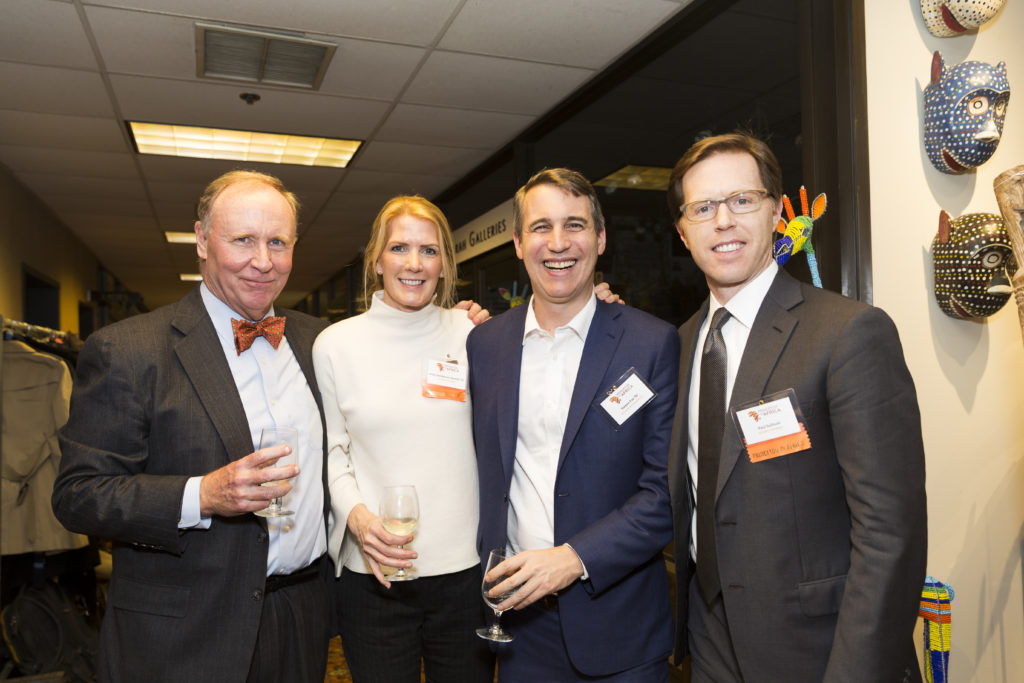November/December 2018
Greetings from the PiAf office! I hope you are having a wonderful holiday season.
PiAf staff, board and alumni spent the month of November beginning the selection process for our 2019-20 cohort of Fellows by reading an impressive batch of applications. We are already so impressed with the wide range of experiences, skills and backgrounds that these candidates demonstrate and are eager to meet them during our interviews in January. You can also check out some highlights of our 2018-19 Fellows from the past few months here.
This season has been a time for the PiAf family to reconnect. Our alumni have been hosting meetups from Senegal to San Fransisco and on December 3rd we held our 20th Anniversary Celebration Kickoff in New York City. The event was an opportunity for key supporters to mingle with alumni and to hear how PiAf is preparing for the next 20 years. Ambassador Cameron Hume ’68, our first-ever honoree, and Teresa Clarke, chairman and CEO of Africa.com, were kind enough to offer comments on how they have seen the program grow over the years and how Princeton in Africa fits into the larger context of developments and trends within Africa. This event opened our 20th anniversary celebrations, which will continue throughout 2019 and culminate in a gala in the fall of 2019 as we plan for our next 20 years. For photos of the evening please check out our Facebook page here.
Thank you for all of your support in 2018. Wishing you and your loved ones all the best this holiday. Happy New Year!
PiAf Connections
Please click below to check out pictures of our Fellows, Alums and other members of the PiAf family meeting up at home and around Africa.
Notes from the Field
By Paley Sweet, 2018-19 Fellow with CCBRT in Tanzania
Are numbers enough?
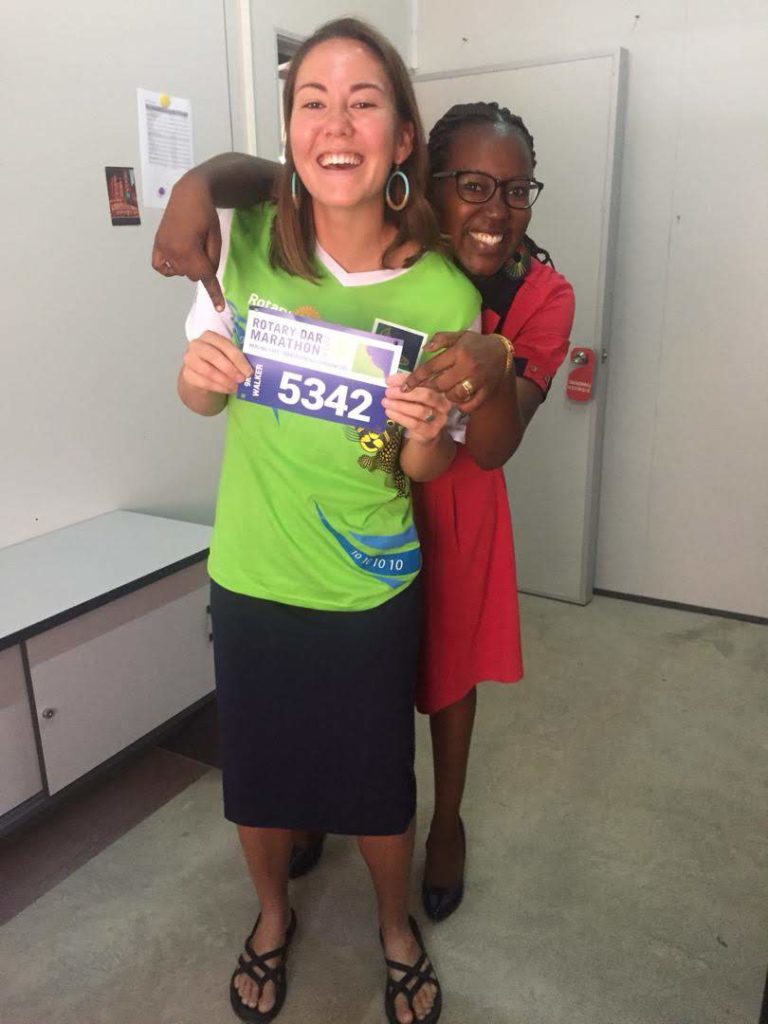
On my first day at CCBRT (Comprehensive Community Based Rehabilitation in Tanzania), I was given numbers to familiarize myself with.
57,000,000: Population of Tanzania.
4,200,000: Tanzanians living with a disability.
1,123,390: Tanzanians that are visually impaired.
500,000: Tanzanians needing a wheelchair.
250,000: Tanzanians needing an assistive device.
3,000: Children born with clubfoot per year in Tanzania.
3,000: Women that develop a fistula per year in Tanzania.65,682: Eye consultations at CCBRT in 2017.14,016: Assistive devices given out by CCBRT staff in 2017.
738: Fistula surgeries performed at CCBRT in 2017.
583: Clubfoot consultations conducted at CCBRT in 2017.As I was reading these numbers I realized I didn’t know who CCBRT served. I knew what type of disabilities people were living with and what services CCBR
T provided, but I didn’t know the people behind the numbers – the hundreds of miles people travel to access our services or the inspiring stories of how patients have worked to end the stigmatization of people with disabilities in their own communities.
Here are a few of my own numbers:
120: Bajaj rides I’ve taken
15: Colleagues I greet in the morning.
11: Blogs I’ve written for the website.
3: Grant proposals I’ve written.
2: Months I’ve lived in Dar es Salaam, Tanzania.Looking at these numbers, you wouldn’t know the stories behind them. Like last week I met a fistula patient who was so inspired by her care at CCBRT that she became a fistula ambassador and now connects women with CCBRT’s services. You wouldn’t know that people travel from all over the country to come to CCBRT because services for children under five are free. You wouldn’t know that for every blog I’ve written, I’ve gotten to talk with staff, and hear why they have devoted years to work at CCBRT. You wouldn’t know that 90% of the Bajaj rides I’ve taken are with Benny, who grew up in Dar and comes to pick me up every day.
As an External Affairs Fellow my life is numbers: the amount of money we need to raise to fund our rehabilitation services, the number of staff members we need to meet the growing patient volume, and the number of patients CCBRT has served. What I’ve realized since coming to CCBRT, an incredible community-based healthcare service provider, is that numbers don’t provide a full picture. As a fundraiser, I know donors like to see impact numbers and organizations need data on the people they serve, but I believe that people and their incredible stories get lost in these numbers. In my second week at CCBRT I went from writing a grant proposal one minute to watching a clubfoot wrapping the next minute. It is easy to get separated from the people sitting behind a desk, from the deep truth that these numbers we talk about each day represent human beings, all with a poignant story that needs to be heard. Working with a local organization has provided me with the opportunity to connect with the people instead of the numbers, one of the most incredible aspects of working with CCBRT. In the next eight months at CCBRT, I’m looking forward to going behind the numbers – hearing stories, seeing the smiles, understanding the barriers in someone’s daily life, and witnessing the miracles performed here every day. Then my fundraising work will be far more than meeting a numerical goal or looking good on a spreadsheet. And that is what our work is all about.
Notes from the Field
By Nicole Archibald, 2018-19 Fellow with CHAI in eSwatini
Sawubona! My first three months in Eswatini, formerly Swaziland, have been enriching and rewarding in many ways. I am based in Mbabane, the capital of the Kingdom of Eswatini. Just seven months ago, King Mswati III, celebrated his 50th birthday along with the 50th anniversary of the country’s independence from Britain by changing the country’s name from Swaziland to Eswatini (SiSwati for “place of the Swazi”).

Eswatini is an amazing place full of tradition, faith, and natural beauty. I work for the Clinton Health Access Initiative (CHAI), on the Sustainable Health Financing Team. My responsibilities primarily include supporting budgeting and financial management. CHAI uses a consulting approach to strengthen the health system by partnering with the Ministry of Health, hospitals, and pharmaceutical organizations. My favorite projects have been supporting the national cancer prevention efforts and visiting health facilities to measure service delivery.
The rise of cancer, coupled with the shortage of oncology specialists and drugs have made early diagnosis, care, and treatment of cancer in Eswatini imperative. In my role, I work with an epidemiologist who leads the Eswatini National Cancer Registry. In 2014, the Cancer Registry identified that cervical, prostate, and breast cancers have the highest occurrence rate in the country. This rising trend in cancer can be attributed to many factors, including HIV prevalence, population ageing, and exposure to risk factors, such as smoking, an unhealthy diet, physical inactivity, and environmental pollution. Unfortunately, a late diagnosis, low availability of diagnostic equipment, and limited treatments result in high mortality rates for cancer patients in Eswatini. I started my fellowship at a pivotal time with the launch of the country’s first national cancer control strategy. It’s been a great experience supporting the development and finalization of the strategy. Over the next few months, I look forward to helping with the implementation of the strategy and continuing to support the management of grant funding to bring more oncologists and cancer treatments to Eswatini.
Notes from the Field
20th Anniversary Celebration Kickoff Snapshots



